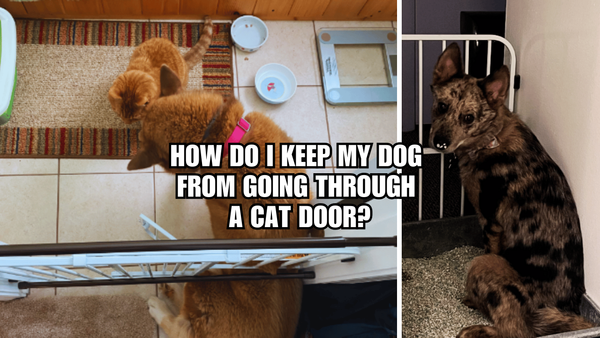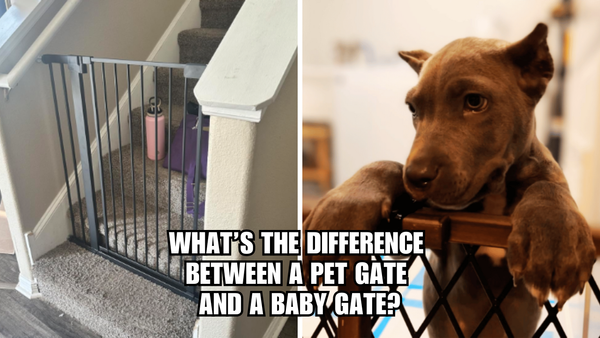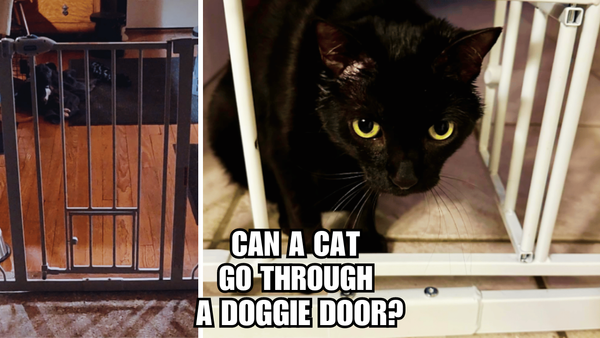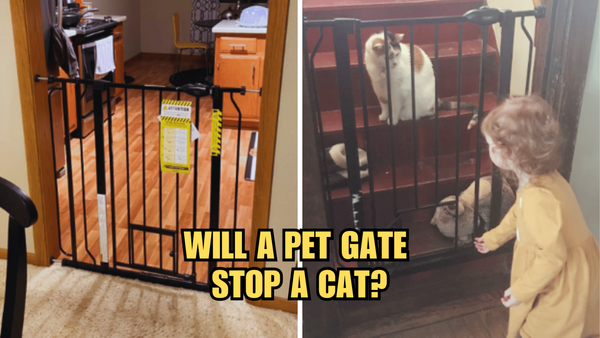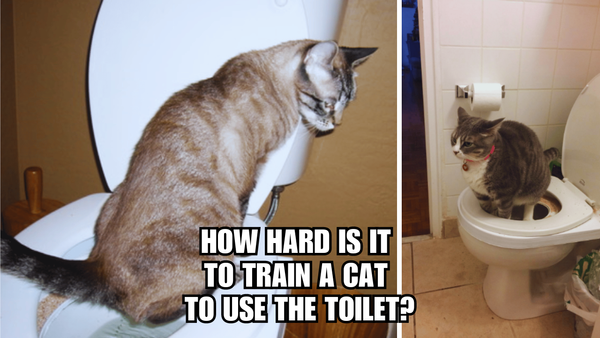Cats are enigmatic creatures with a range of quirky behaviors that can both amuse and baffle their human companions. One such behavior is an obsession with toilet paper that leaves many cat owners scratching their heads and their bathroom supplies in shreds. If you've ever found yourself asking, "Why is my cat obsessed with toilet paper?" you're not alone. Let's unravel this mystery together.
Key Takeaways:
- Understanding the reasons behind your cat's toilet paper obsession can help mitigate the behavior.
- Providing alternative toys and activities can redirect your cat's attention away from toilet paper.
- Keeping the bathroom door closed and toilet paper out of reach are practical solutions to prevent unwanted play.
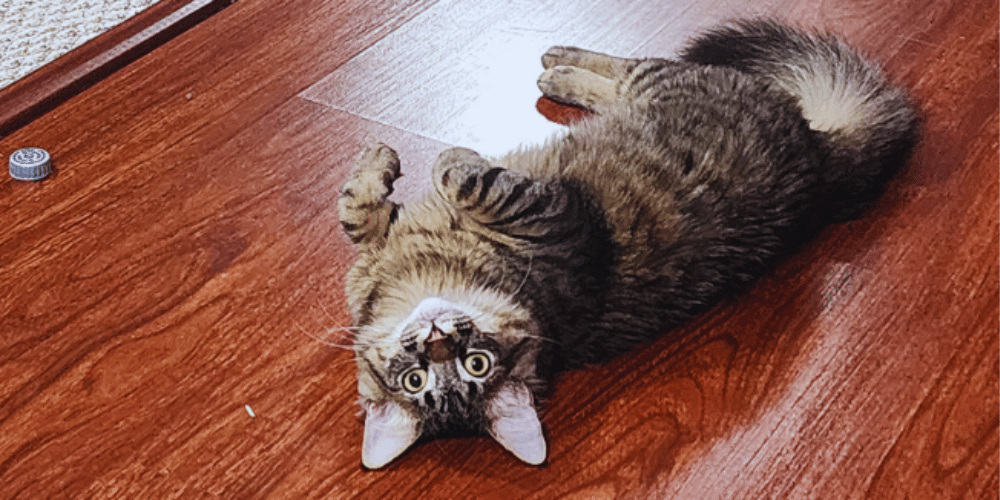
The Allure of Toilet Paper Rolls
Many cats find toilet paper rolls irresistible due to their texture and rollability. The softness of toilet paper is similar to some of the prey they would encounter in the wild, and the roll itself presents a challenge that most cats can't resist. When a cat gets its paws on a roll of toilet paper, the unrolling motion and the sound it makes can mimic the thrill of chasing and capturing prey.
Additionally, the act of tearing and shredding toilet paper could be a form of entertainment for your kitty. In the absence of other toys or interactive activities, a roll of toilet paper becomes a convenient and satisfying object to play with. It's not just about the physical action; the smell and taste of the paper might also be appealing to some cats.
Young Cat Energy and Playtime
A young cat, in particular, has a lot of energy to burn. Kittens and younger felines are more likely to engage in playful behavior, and a toilet roll presents a perfect opportunity for them to keep their bodies active. It's not uncommon for kittens to bat at, grab, and chew on toilet paper as part of their exploratory and playful nature.
To redirect this energy, providing a variety of interactive toys and climbing structures can be a great solution. These alternatives can help satisfy your cat's need for physical activity and mental stimulation, reducing the likelihood of them turning to toilet paper for fun.
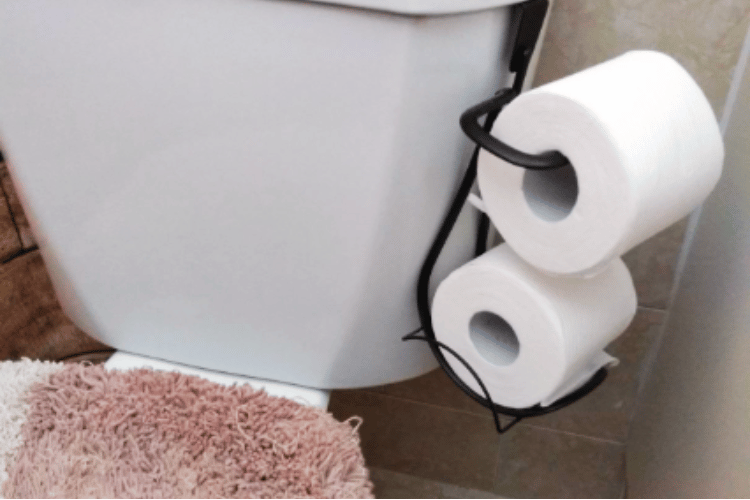
Boredom and Lack of Stimulation
Boredom is a significant factor in why cats may turn to toilet paper for amusement. When cats don't have enough stimulation in their environment, they'll look for anything that can provide entertainment. Toilet paper, with its easy accessibility and interactive nature, often becomes the target of such behavior.
To combat boredom, it's essential to keep your cat's environment enriched with alternative toys and activities. Scratching posts, cardboard boxes, and other toys can offer your cat the stimulation it needs to stay engaged and content without resorting to playing with toilet paper.
The Behavioral Quirks of Felines
Cats are notorious for their quirky behaviors, and their fascination with toilet paper rolls is no exception. It's not just the softness of the tissue that appeals to them; it's the entire experience. When a cat encounters a toilet paper roll, it's like a puzzle waiting to be solved. The roll spins, it unravels, and it makes sounds that pique their interest. This interaction is a form of play that taps into their predatory instincts. They may bat at the roll, bite it, or even kick it across the floor with their hind legs, turning your bathroom into a playground.
Moreover, this habit of playing with non-food items like toilet paper can be a sign of a cat's well-being. It shows that they are comfortable in their environment and feel safe enough to engage in playful behavior. However, if your cat is shredding paper excessively or seems obsessed with putting things in their mouth, it could indicate that they are bored or lacking stimulation. Providing a variety of toys and engaging in regular playtime can help redirect this behavior to more appropriate outlets.
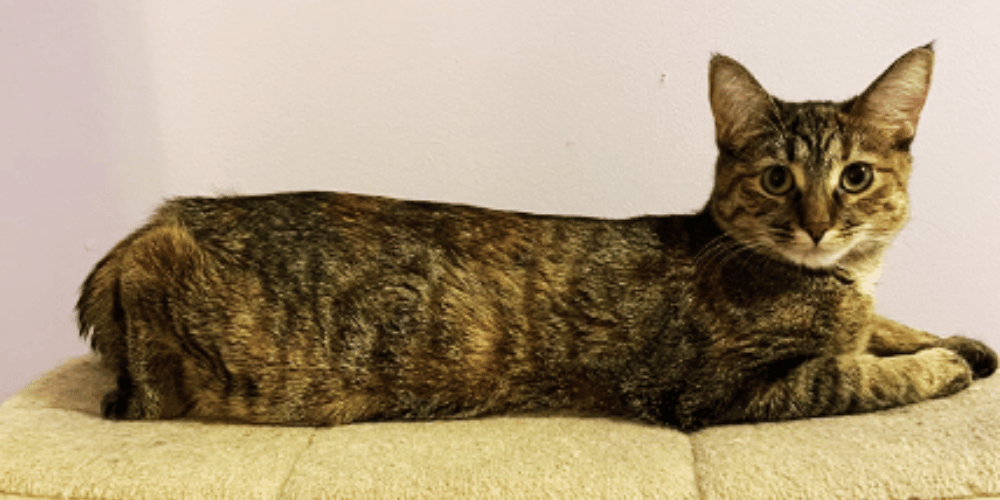
The Psychology Behind Non-Food Item Fascination
Cats, much like their human companions, have complex psychological landscapes that can explain why they're drawn to non-food items like toilet paper. It's not just about the soft texture or the roll's ability to spin; it's about the mental stimulation it provides. When a cat shreds through a roll of toilet paper, they're engaging in a form of play that tests their hunting skills and provides a mental workout. This activity can be a crucial aspect of their overall well-being, especially for indoor cats that may not have as many opportunities for natural predatory behaviors.
Moreover, this fascination with household stuff like toilet paper covers more than just their need for physical activity. It's also about the satisfaction they get from interacting with their environment in a way that feels instinctual to them. When your kitten pounces on a roll, they're not just causing mischief; they're expressing natural behaviors that are essential to their development. It's a bit like a toddler exploring the world through touch and play – it's how they learn and grow.
The Impact of Environmental Enrichment on Feline Behavior
Environmental enrichment is a key factor in maintaining the well-being of a domestic cat. By providing a variety of stimuli, cat owners can prevent their feline friends from turning to toilet paper as their main source of entertainment. Think of your home as a jungle gym for your kitten; by adding cat trees, interactive toys, and puzzle feeders, you create a space that challenges and engages them. This can significantly reduce the likelihood of your cat developing an obsession with toilet paper or other non-food items around the house.
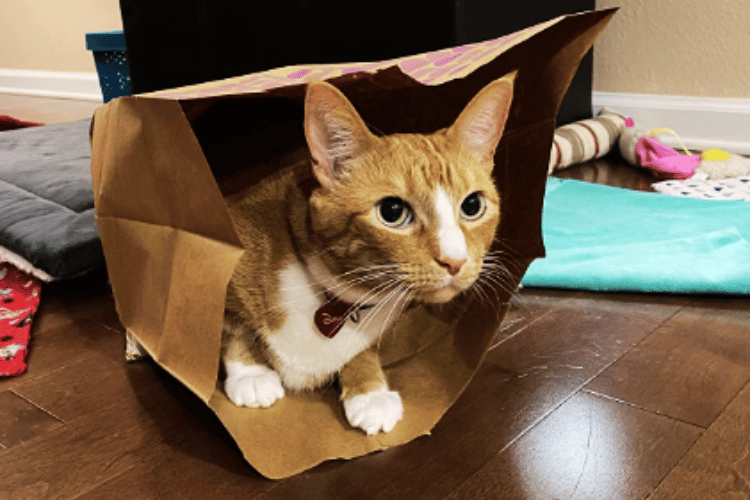
In addition to physical enrichment, consider the role of soft items like blankets or specially designed cat covers that can provide comfort and a sense of security. Cats love to knead and snuggle into soft materials, which can be a soothing activity that reduces stress. Place these items on tables or other surfaces where your cat likes to hang out, and you'll likely find that they'll choose these over a roll of toilet paper. Remember, a well-enriched environment is a happy cat's haven, and it'll go a long way in preventing unwanted behaviors.
Creating a Cat-Friendly Environment
To keep your feline friend from turning your bathroom into a confetti-strewn room, consider their need for environmental enrichment. Cats are natural hunters and explorers, and they require an environment that stimulates their senses and allows them to exhibit normal behaviors. You can create such an environment by putting up cat shelves on the walls for climbing, offering puzzle feeders to stimulate their intellect, or simply providing a variety of toys that mimic the texture and sounds of toilet paper rolls without the mess.
Another aspect of environmental enrichment is ensuring that your cat has plenty of appropriate items to chew on. Chewing is a normal behavior for kittens and adult cats alike, and it can help maintain their dental health. Instead of the forbidden toilet paper roll, offer your cat chew toys that are safe and designed for animals. You can also block access to the bathroom or cover the toilet paper roll with a holder to prevent your cat from turning it into their next toy. By understanding and catering to your cat's needs, you can promote their well-being and save your bathroom supplies from a feline-induced confetti party.
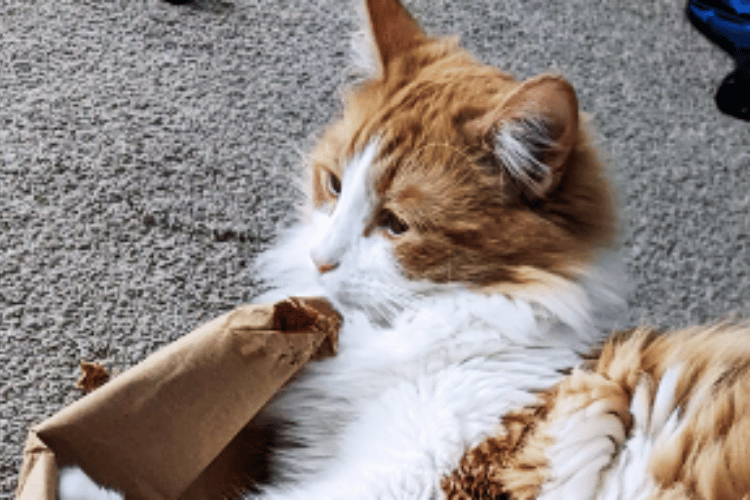
The Hunting Instinct in Cats
Cats are natural hunters, and their instinct to chase and capture prey is strong. A roll of toilet paper can simulate the experience of hunting for a small animal, as it moves unpredictably and makes a satisfying sound when batted around. This instinctual behavior is a healthy part of a cat's well-being, but it can become problematic when directed at household items like toilet paper.
Providing your cat with toys that mimic the behavior of prey, such as toys that move on their own or can be filled with treats, can help satisfy their hunting instincts in a more appropriate way.
Sensory Attraction to Paper Products
The sensory experience of interacting with paper products can be another reason why cats are drawn to toilet paper. The texture, softness, and even the smell of paper can be intriguing to cats. Some cats may even eat paper or other non-food items, a behavior known as pica, which can be a sign of dietary deficiencies or other issues in veterinary medicine.
If you notice your cat is not only playing with but also eating toilet paper or paper towels, it's important to consult with a veterinarian to rule out any underlying health concerns.
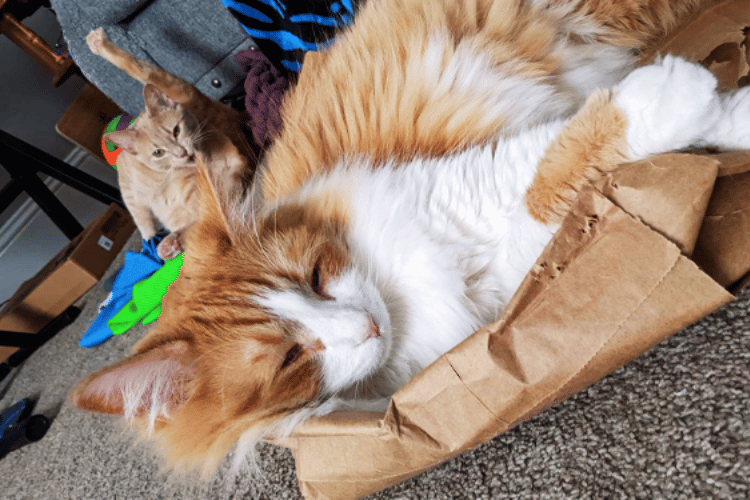
Preventative Measures and Training
One of the simplest solutions to prevent your cat from destroying toilet paper is to keep the bathroom door closed. By blocking access to the toilet paper holder, you can eliminate the temptation altogether. Alternatively, you can place the toilet paper on a high shelf or use a protective cover that makes it difficult for your cat to unroll the paper.
Training your cat to leave the toilet paper alone can also be effective. Using positive reinforcement techniques, such as offering treats and praise when they play with their toys instead of toilet paper, can encourage good behavior. Consistency is key in any training regimen.
Summary
Cats may be obsessed with toilet paper for various reasons, including their playful nature, hunting instincts, sensory attraction to paper, boredom, and lack of stimulation. By understanding these motivations, cat owners can take steps to redirect their cat's attention to more suitable activities and toys.
Keeping the bathroom door closed and toilet paper out of reach, along with providing plenty of alternative forms of entertainment, can help maintain both your cat's happiness and your sanity.
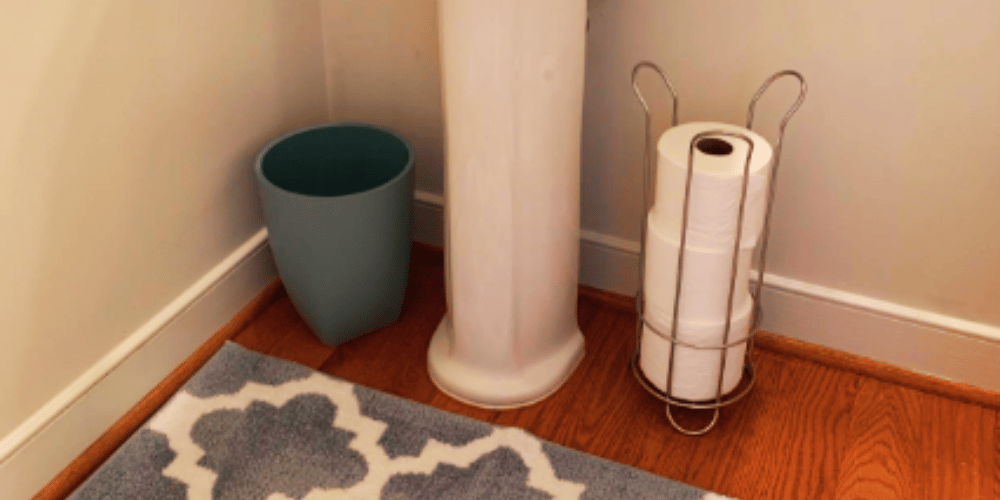
FAQ Section
Q: Is it harmful for my cat to play with toilet paper? A: While playing with toilet paper is generally harmless, it can become an issue if your cat starts eating it or if it leads to a mess in your house. Eating non-food items like toilet paper can sometimes indicate a health issue, so it's best to consult a veterinarian if this behavior is noticed.
Q: How can I stop my cat from unrolling the entire roll of toilet paper? A: To prevent your cat from unrolling toilet paper, keep the bathroom door closed, place the toilet paper out of reach, use a toilet paper cover, or provide alternative toys and activities to keep your cat entertained. Training your cat with positive reinforcement can also help change this behavior.
Q: Why does my cat eat toilet paper, and should I be worried? A: If your cat is eating toilet paper, it could be a sign of pica, which is the ingestion of non-food items. This can be due to dietary deficiencies, boredom, or other health issues. It's important to consult with a veterinarian to ensure your cat's health and well-being.
Thank you for visiting LegitLists we hope this helps you make a legitimate choice!


